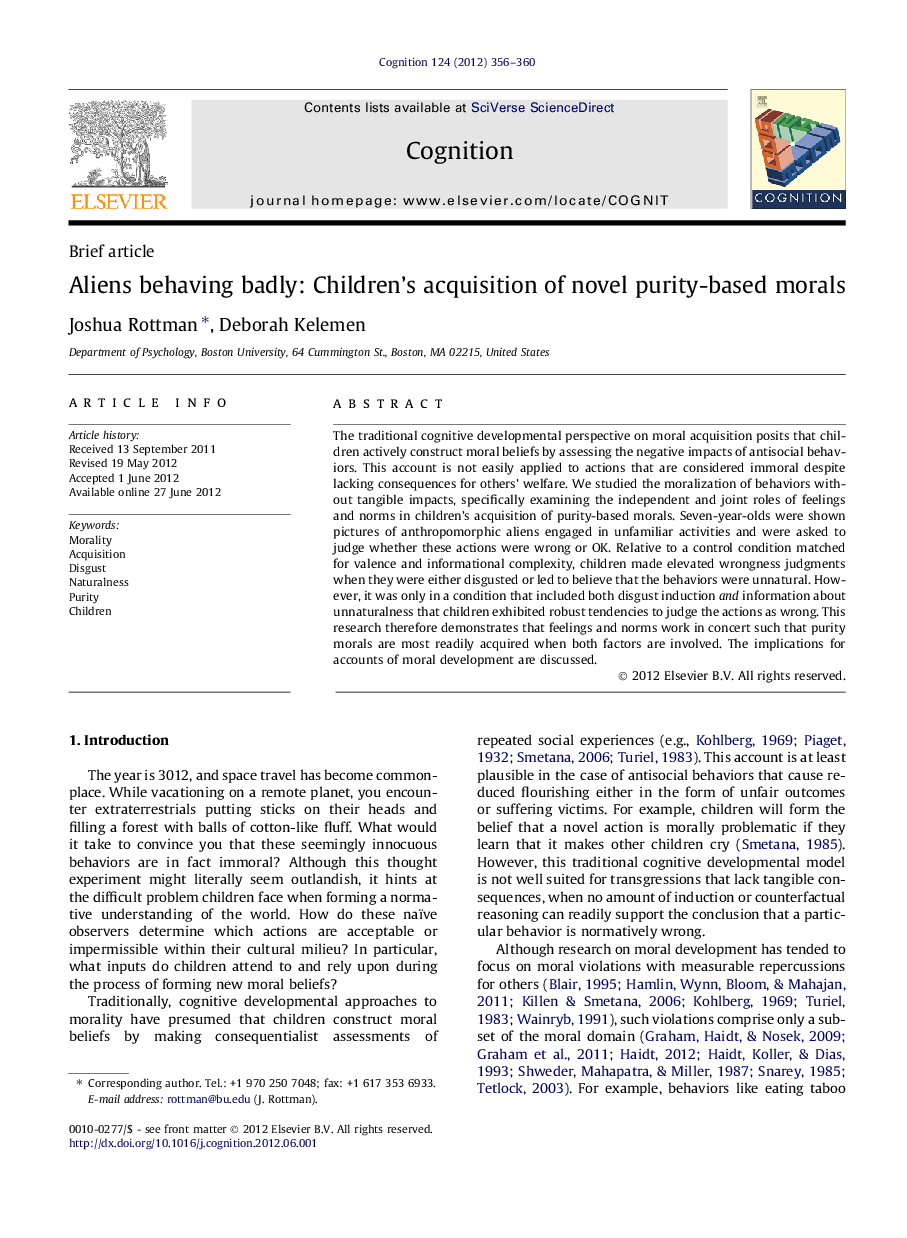| کد مقاله | کد نشریه | سال انتشار | مقاله انگلیسی | نسخه تمام متن |
|---|---|---|---|---|
| 926506 | 921873 | 2012 | 5 صفحه PDF | دانلود رایگان |

The traditional cognitive developmental perspective on moral acquisition posits that children actively construct moral beliefs by assessing the negative impacts of antisocial behaviors. This account is not easily applied to actions that are considered immoral despite lacking consequences for others’ welfare. We studied the moralization of behaviors without tangible impacts, specifically examining the independent and joint roles of feelings and norms in children’s acquisition of purity-based morals. Seven-year-olds were shown pictures of anthropomorphic aliens engaged in unfamiliar activities and were asked to judge whether these actions were wrong or OK. Relative to a control condition matched for valence and informational complexity, children made elevated wrongness judgments when they were either disgusted or led to believe that the behaviors were unnatural. However, it was only in a condition that included both disgust induction and information about unnaturalness that children exhibited robust tendencies to judge the actions as wrong. This research therefore demonstrates that feelings and norms work in concert such that purity morals are most readily acquired when both factors are involved. The implications for accounts of moral development are discussed.
► We examined the factors that lead children to acquire novel purity-based morals.
► Disgust was induced and/or information about unnaturalness was provided.
► Both disgust and unnaturalness independently elevated judgments of wrongness.
► The two factors in combination led to the most robust moral acquisition.
► Norms and feelings can lead to rapid moralization of seemingly innocuous actions.
Journal: Cognition - Volume 124, Issue 3, September 2012, Pages 356–360